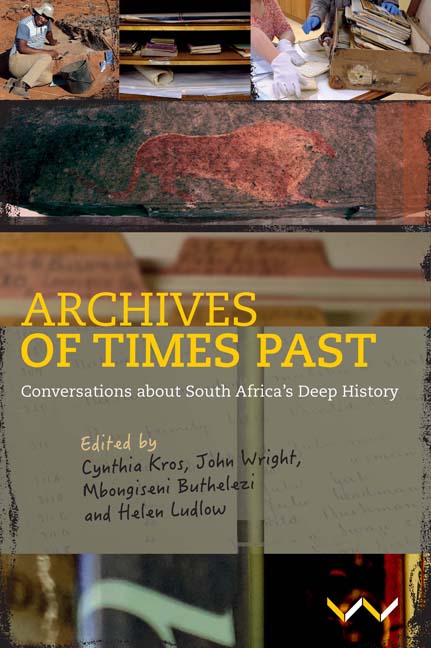Book contents
- Frontmatter
- Contents
- List Of Illustrations
- Acknowledgements
- Editorial Note
- Map
- PART I FIRST THOUGHTS ABOUT THE ARCHIVE
- PART II COMMENTARIES AND CONVERSATIONS
- PART III BECOMING EXPLORERS
- PART IV ENGAGING WITH ARCHAEOLOGY AND ROCK ART
- PART V CONFLICTING OPINIONS
- PART VI FURTHER THOUGHTS
- Glossary
- Contributors
- Index
Chapter 8 - Conversations with Sekibakiba Lekgoathi
Published online by Cambridge University Press: 26 May 2022
- Frontmatter
- Contents
- List Of Illustrations
- Acknowledgements
- Editorial Note
- Map
- PART I FIRST THOUGHTS ABOUT THE ARCHIVE
- PART II COMMENTARIES AND CONVERSATIONS
- PART III BECOMING EXPLORERS
- PART IV ENGAGING WITH ARCHAEOLOGY AND ROCK ART
- PART V CONFLICTING OPINIONS
- PART VI FURTHER THOUGHTS
- Glossary
- Contributors
- Index
Summary
Sekibakiba (Sekiba) Lekgoathi grew up in the late 1960s and early 1970s near what is now the town of Mokopane in Limpopo Province, looking after his family's cattle and goats. Fast-forward some 40 years, and in 2011 he became an associate professor of history at Wits University. In 2015, he became head of the Department of History at Wits. By this time, he was also an authority on the life and work of the noted ethnologist Dr Nicolaas van Warmelo (1904−1989).
Professor Lekgoathi's interests overlap with our own interests in the archive of the past before colonial times. We thought it would be a good idea to have a conversation with him about his life and about Van Warmelo's work. The three of us had long discussions at Wits University on 20 September 2017 and 21 February 2018.
To begin with, we talked about Professor Lekgoathi's career in some detail. Against this background, we moved on to discuss how he had encountered Van Warmelo's writings, published and unpublished. In this chapter, we first give an account of what Professor Lekgoathi told us about his life. Much of the story, especially the earlier part, is given verbatim − that is, in his own words. For other parts of the story, we summarise what he told us. In the second section of the chapter, we give a mostly verbatim account of what he told us about his engagement with Van Warmelo's work. At several points we have inserted our own explanatory notes.
PART 1: FROM HERDBOY TO HISTORY PROFESSOR
Sekibakiba Lekgoathi was born in 1966 on a white-owned farm near the town then called Potgietersrus (now Mokopane). He was the eldest of seven children, and grew up using both Northern Sotho (Sepedi) and Northern Ndebele as home languages. His family, headed by his paternal grandfather, lived as tenants on the farm, with the right to keep cattle and goats. In exchange, the grandfather worked on the farm. By the 1960s, the South African government was forcing tenants on farms in many parts of the country to reduce the numbers of livestock that they kept.
- Type
- Chapter
- Information
- Archives of Times PastConversations about South Africa's Deep History, pp. 104 - 126Publisher: Wits University PressPrint publication year: 2022



